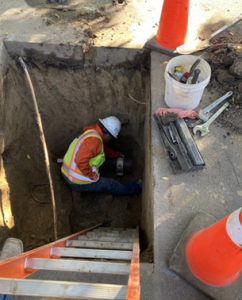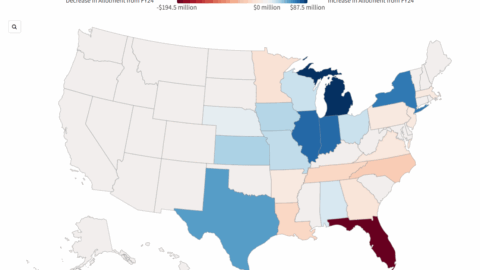Denver Water proves its Lead Reduction Program is a national model
Tom Neltner, Senior Director, Safer Chemicals and Lindsay McCormick, Senior Manager, Safer Chemicals
What’s New: After an extensive review process, EPA approved Denver Water’s request to extend the variance to allow the utility to administer their Lead Reduction Program for the full 15-year term. EPA touts Denver Water’s Lead Reduction Program as an “innovative and aggressive approach” to lead service line replacement (LSL) in a letter approving the variance.
Denver Water will continue to:
- replace all lead service lines at no cost to homeowners,
- provide residents with filters to help reduce their exposure in the short-term, and
- use an alternative approach to water treatment that still ensures effective corrosion control.
We applaud their emphasis on environmental justice and commitment to ensure that the program continues to prioritize disproportionately impacted neighborhoods – and EPA’s new requirement to track this progress.
This fall, we visited Denver Water’s field operations to see for ourselves how it is successfully replacing more than 4,500 lines per year. We were impressed by what we saw, and sent a letter to EPA’s Regional Administrator expressing our full support for Denver Water’s March 2022 request to continue their program.

Our Experience: Denver Water’s Lead Reduction Program is as efficient in practice as it is on paper. We watched alongside crews as they investigated the material of service lines, replaced multiple LSLs within a single neighborhood, and detailed their work through documentation.
We talked with crews to learn more about the process, including potholing (a mechanism to verify a service line’s material that also helps avoid costly excavation), directional boring underground to install new copper lines without ripping up sidewalks and yards, connecting the new lines to the water main, and efficient work site cleanup. To increase efficiency, separate crews performed each of these tasks in an assembly-line type approach. Further, it was evident the crews gave careful attention to details. While we were onsite, the crew encountered a complicated situation where a single service line provided water to multiple buildings, and they carefully considered the issues and alternatives. We also learned more about Denver Water’s thoughtful customer coordination process to get consent, schedule replacements, and educate customers throughout the process.
Why It Matters: Hundreds of communities across the country are developing programs to eliminate LSLs and leverage the $15 billion in dedicated funds available from the Infrastructure Investment and Jobs Act (IIJA). Denver Water is one of a handful of comprehensive LSL replacement programs that we can call a national model. Other programs include Flint, Cincinnati, Newark, and Washington, D.C. These programs have demonstrated an ability to safely replace lead pipes, engage with their communities, and adapt to changing needs efficiently.
If your community is in the process of developing an LSL replacement program, Denver Water holds a wealth of experience and is willing to share lessons learned with other communities.
Go Deeper: Learn more about Denver Water’s Lead Reduction Program at DenverWater.org/lead. To read the full variance request, you can download it directly from the federal docket. Also check out our previous blog on the Denver Water variance.













